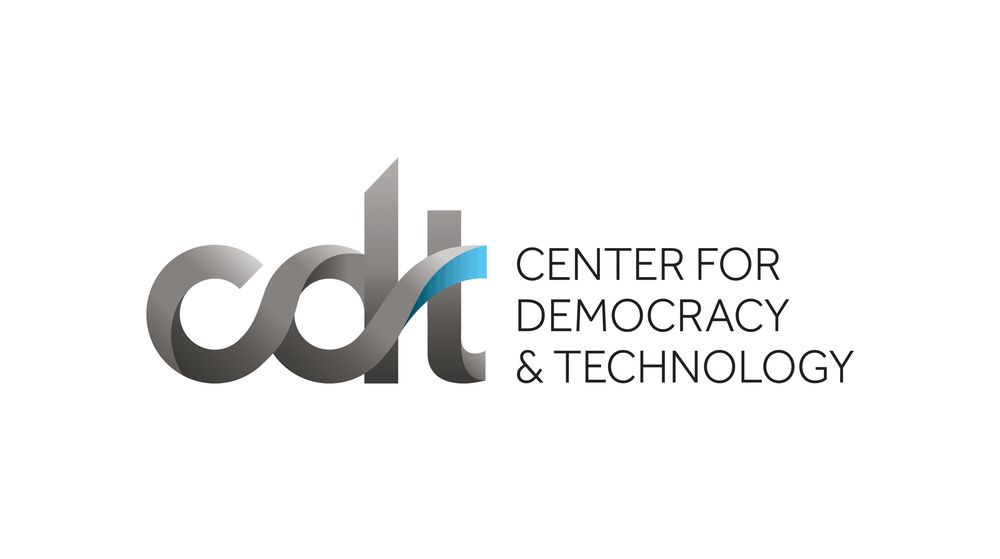Center for Democracy & Technology
@cdt.org
28K followers
1.5K following
4.3K posts
The Center for Democracy & Technology. Shaping technology policy and architecture, with a focus on equity and justice. @cdteu.org for our EU-based team.
https://cdt.org
Posts
Media
Videos
Starter Packs
Pinned
Reposted by Center for Democracy & Technology
















